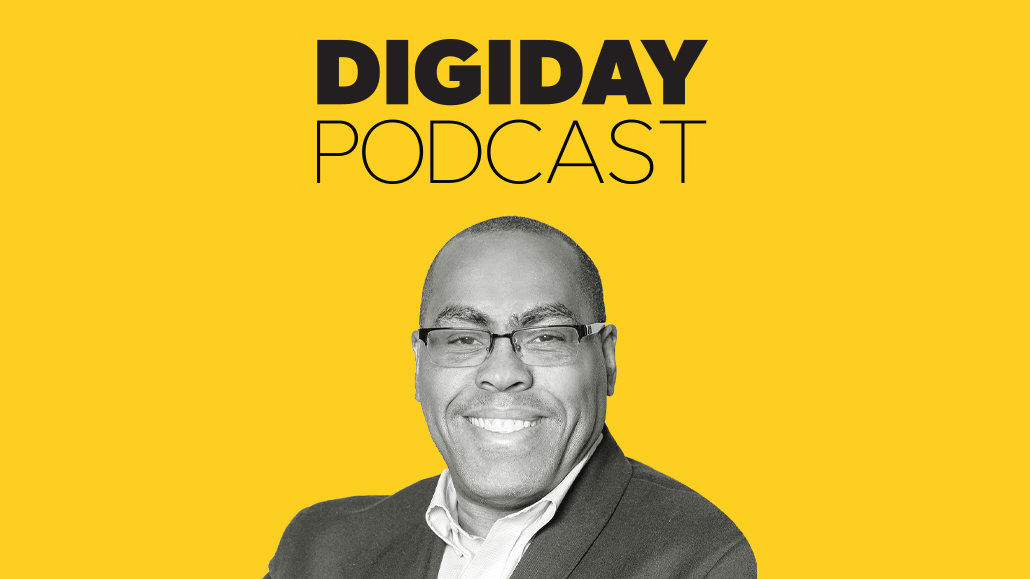Save 50% on a 3-month Digiday+ membership. Ends Dec 5.
Dentsu Media’s Mark Prince is pushing advertisers to diversify their media mixes to support minority-owned publishers

Subscribe: Apple Podcasts • Spotify
There has been plenty of talk among advertisers and agencies about the need for brands to move ad dollars to minority-owned publishers to ensure they are reaching as many potential customers as possible. As svp and head of economic empowerment at Dentsu Media, Mark Prince is charged with turning that talk into action.
“We’re guiding our internal investment and strategy teams to make sure that we have the framework that really fosters the inclusion of our diverse-owned outlets, working hard to remove the barriers that have long existed depending on the type of media that we’re working with in this space and also making sure that our diversity vendors are heard,” Prince said in the latest episode of the Digiday Podcast.
An important aspect of Dentsu’s economic empowerment team is that it doesn’t sit in a silo but is part of the media agency’s investment group. “It was really important that we have a seat at the table where the dollars are being allocated,” Prince said.
The economic empowerment team’s involvement in Dentsu Americas clients’ investment strategies will play a role in ensuring that the agency group is able to meet its goal of 15% of its annual budget across media, creative and customer experience management to be spent with diverse-owned suppliers by 2025.
Here are a few highlights from the conversation, which have been edited for length and clarity.
Diverse media investment amid an economic downturn
Everyone is keeping track of the economic downturn and what that may entail. But given that this is a group of vendors that have not historically been at the table and have struggled to get access and their fair share, first in can’t be first out. This is a long-term thing. It’s really important that we [are] making sure we’re telling our clients that this needs to stay at the forefront as much as possible. Obviously when there are cuts, sometimes they can’t be avoided. But diverse cannot be the first thing on the chopping block.
The importance of payment windows
At Dentsu, we’re very proud of our 30-day payment terms that we rolled out last fall for minority-owned media. I personally have experience with what a pain point that is for so many vendors because a lot of companies don’t have the reserves to float with 30, 60, 90 days [of non-payment]. We realized that this was something that we could have a more immediate impact on in terms of making a change with that.
The year of results
This is the season. Sitting down with the strategy groups now figuring out what goals are, whether individual clients have specific goals [or], even if they don’t have goals, making sure that this is still part of the plans because it’s harder to come in after the fact. After Labor Day [is] when we start getting into that fall planning season, sitting down with the client leads and our clients as well to hear what their plans are and making sure we have a roadmap, where applicable, that we have these [diverse-owned] partners included going forth in 2023. Because with a lot of the pledges and commitments that have been done over the last two years, this is really about the year of results.
Getting diverse-owned publishers in the door
With our multicultural partners, what we try to do a couple times a month is bring them in for a presentation and really open it up widely to as many team members and as many account teams as well. So people get familiar with the property [to] know who’s out there, what their capabilities are. And then out of that, try to figure out, “OK, are there a couple clients that really make sense based on this presentation?” and then direct them to those respective teams to have further conversations, opportunities to pitch proposals, do the evaluations and go from there.
More in Marketing

Ulta, Best Buy and Adidas dominate AI holiday shopping mentions
The brands that are seeing the biggest boost from this shift in consumer behavior are some of the biggest retailers.

U.K. retailer Boots leads brand efforts to invest in ad creative’s data layer
For media dollars to make an impact, brands need ad creative that actually hits. More CMOs are investing in pre- and post-flight measurement.
Ad position: web_bfu



